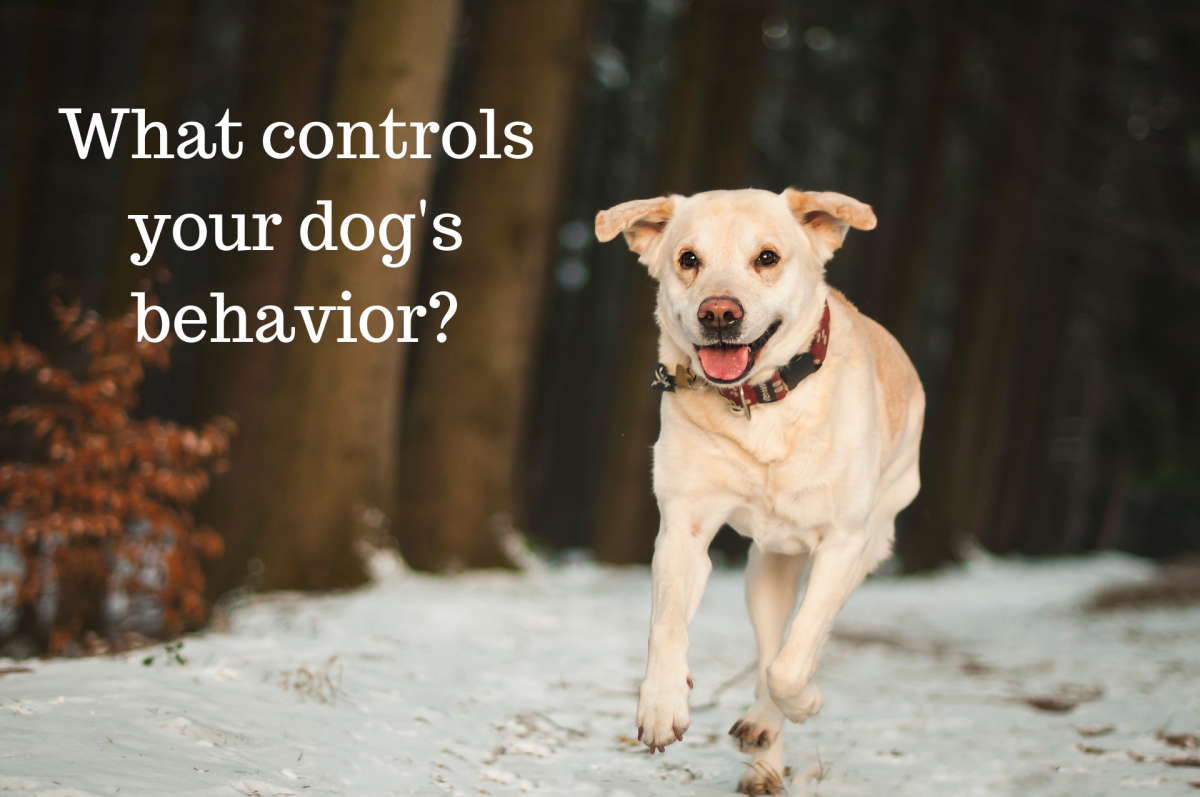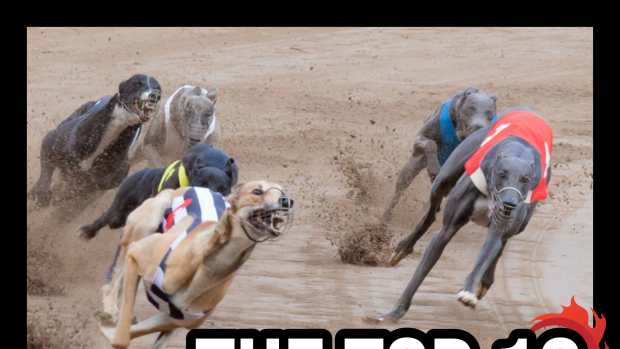Adrienne is a certified dog trainer, former veterinary assistant, and author
of the online dog training course “Brain Training for Dogs.”

Do you know what influences your dog’s behaviors?
Image by Lenka Novotná from Pixabay
When it comes to evaluating dog behavior and making a careful assessment, a
variety of factors come into play. Just as in humans, a dog’s personality and
temperament are the end result of the interplay of genes and the environment.
The nature versus nurture debate applies to the canine world, as well. Is a
dog’s behavior the result of an intrinsic mix of genes, or is it the result of
several experiences the dog has had in this world? It’s very likely that both
are fundamental factors.
The phrase “nature versus nurture” was coined by anthropologist Francis
Galton. The theory emphasizes the importance of innate qualities versus
personal experiences. Behavioral traits of dogs may be the result of one or
the other or most likely both. There are many factors capable of influencing a
dog’s behavior and they may have a hereditary or environmental origin. The
following are common factors that may influence a dog’s behavior.
The Role of Nature
Here is how a dog’s basic nature can influence their behavior.
Genetic Influences
A dog’s behavior may be influenced by its hereditary baggage. If you mate two
shy dogs, chances are high you will have shy puppies. This is why it is very
important to deal with reputable breeders who temperament test their breeding
pool. It may be very difficult to change the personality of a dog which is
wired deep into its genes. Behavior modification may help some, but many cases
may be reluctant to improve.
Influence of the Breed
A dog’s behavior may also significantly be influenced by the breed. You may
have a hyperactive Labrador because this breed was meant to work for most of
the day. You may have an aloof Rottweiler because this guarding breed was bred
to be wary of strangers. For this reason, it is very important to evaluate a
breed very well before considering adopting a dog. Learn about the history of
the dog, the typical temperament, and its needs. However, consider that within
a breed, each dog may have their individual personalities that may not
necessarily abide by the ”breed standard.”
The Role of Nurture
Here is how a dog’s environment could influence their behavior.
Experiences in the Litter
The litter plays a big factor in the upbringing of a puppy. A very large
litter may mean that the mother dog may have a hard time taking care of all
pups; this may influence future behaviors. A puppy learns a lot from its
littermates and mother and this is why owners are told to get a puppy only
after it has reached eight weeks. A puppy, for instance, who tends to nip a
lot may have missed being taught proper bite inhibition, something the owner
will have to teach twenty bite marks later.
The Socialization Window
Puppies undergo a critical phase in puppyhood between four weeks and four
months. During this critical phase, puppies must learn as much as they can
about the world around them. Exposing the puppy to as many people, noises,
pets, and places will help the puppy grow into a stable dog that does not
react much to new people or sounds. Lack of proper socialization may cause
behavior problems such as anxiety or aggression.
Role of Health
Health plays a big role in behavior. A healthy mind is in a healthy body. For
this reason, dogs affected by sudden behavioral problems should be seen by a
veterinarian. Some forms of aggression may be linked to health problems such
as low thyroid levels. Dogs who have pain may also become grumpy and prone to
behavioral changes. Dogs on certain medication may also undergo behavior
changes.
Environmental Effects
Here the owner may come into play. Litters of puppies raised in dark garages
with no sensorial stimulation may be affected for life. Dogs abused or, on the
contrary, spoiled may also undergo behavioral changes. If a dog has bad
experiences, it may become fearful and defensive, whereas if it has many good
experiences, its confidence will grow. The environment may play a big role in
a dog’s behavior, and it may help dogs born with bad genes or it may turn bad
dogs into good dogs blessed with good genes.
Scroll to Continue
Read More From Pethelpful

Why Does My Cat Sit on My Stuff?

Tips for Home Care for Your Vomiting Cat When You Cannot Visit the Vet

The Top 10 Fastest Dog Breeds
Final Thoughts
As seen, a multitude of factors come into play in the shaping of a dog’s
behavior. Well-raised puppies coming from reputable breeders are usually like
balls of play dough. You can shape their behavior and turn them into
extraordinary beings or you can ruin them for life if you abuse or neglect
them.
While the debate of nature versus nurture remains open, it must be recognized
that owners often remain the primary factors when it comes to a dog’s
behavior. This is why breed-specific legislation should be stopped: blame the
owner, not the breed. Puppies are in most cases born good; it is how they are
raised and cared for that may ultimately make a difference.
This article is accurate and true to the best of the author’s knowledge. It
is not meant to substitute for diagnosis, prognosis, treatment, prescription,
or formal and individualized advice from a veterinary medical professional.
Animals exhibiting signs and symptoms of distress should be seen by a
veterinarian immediately.
Comments
fundamentallife on September 18, 2010:
Great explanation my friend, I thoroughly enjoyed the read.
Voted up and awesome!
AJ..
bayoulady from Northern Louisiana,USA on September 16, 2010:
Super article.My Sweetie Pie was a shelter dog. They say she had been on the
streets and scavenging around in the town in people’s backyards for weeks. I
know she was treated well by the confident way she acts when I interact with
her,
KatMalone on September 15, 2010:
Enjoyed you hub, very informative. I love dogs.
ocbill from hopefully somewhere peaceful and nice on September 15, 2010:
Yeah, I always believe the hereditary traits always come back into play
especially with animals that are supposed to live in the wild being a home
pet. I heard hats (from you? or someone else on hubpages) may make a dog think
you are a stranger